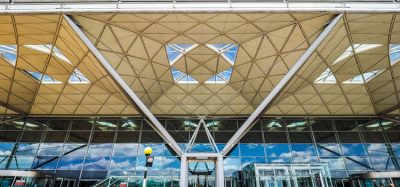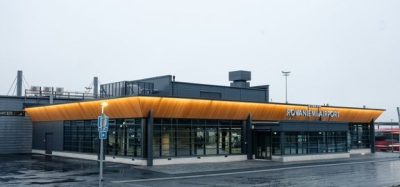Sustainable Aviation responds to Committee on Climate Change’s report
Posted: 2 May 2019 | International Airport Review | No comments yet
Committee on Climate Change’s (CCC) report recommends that the government should reduce UK greenhouse gas emissions to net zero by 2050.
Responding to the Committee on Climate Change’s (CCC) report that recommends that the government should reduce UK greenhouse gas emissions to net zero by 2050, Chair of Sustainable Aviation, Neil Robinson, said: “The UK aviation industry shares the Committee on Climate Change’s ambition to bring emissions into line with the Paris Agreement. We look forward to studying the CCC’s recommendations and working with the government on how we work together to rise to this challenge, while enabling the many positive benefits aviation brings by connecting people across the world.
“Since 2010, UK aviation has successfully decoupled growth in CO2 emissions from growth in passengers, freight and flights. We expect this to continue, as set out in the Sustainable Aviation CO2 Road-Map. For instance, we believe there are exciting opportunities to further reduce emissions through the development of hybrid electric aircraft, use of sustainable aviation fuels and modernisation of UK airspace.
“Aviation is by its very nature a global industry, and like the government, we back an international approach to limiting greenhouse gas emissions from aircraft. That is why we have signed up to emissions limits via the world’s first industry-specific global agreement, CORSIA, which will drive investment in the new, cleaner aircraft of tomorrow.”
Join us live: Shaping the Next Generation of Hold Baggage and Air Cargo Screening
Join us live for an insightful webinar on 11th December at 14:00 GMT, in collaboration with Smiths Detection, as we explore the strategic balance of operational efficiency, regulatory compliance, and sustainability in high-volume security environments.
This session offers a focused look into future-proofing your security strategy.
Key learning points
- Cost Reduction: Strategies to minimize bag travel time while simultaneously reducing operational costs.
- Regulatory Roadmap: Insights into the next wave of regulatory changes and their impact on future investment decisions.
- Sustainable Systems: Practical approaches to building sustainability into security systems and lowering the total cost of ownership (TCO).
- Scalable Solutions: Real-world examples of scalable systems supporting current airport growth and preparing for tomorrow.
Register now for expert insights, case studies, and actionable strategies on operational efficiency!
Like all transport modes, aviation has an impact on the environment. UK aviation is committed to reducing this impact. Sustainable Aviation (SA) was set up in 2005 by airlines, airports, aerospace manufacturers and air traffic service providers to work together towards our common goal of cleaner, quieter and smarter aviation. This work has already yielded impressive results, with new technology and smarter operations meaning UK aviation growth has now been decoupled from growth in emissions.
The next steps for sustainable aviation in the UK:
- 360 new aircraft are currently on order by UK airlines, which will improve the fleet-average fuel efficiency of UK aviation by 22 per cent by 2050
- Airspace modernisation across the UK should be completed by the mid-2020s, which could deliver a reduction of up to 14 per cent in emissions by 2050, including through more efficient operational procedures – like continuous climb departures and descent approaches which reduce engine use, lowering emissions and noise impacts
- Aerospace manufacturers are investing in the next generation of engines and aircraft, and research hybrid-electric and fully-electric planes
- Sustainable aviation fuels are now supported by the UK government and industry will start to commercialise these, delivering a reduction in emissions of up to 24 per cent.
Join our free webinar: Revolutionising India’s travel experience through the Digi Yatra biometric programme.
Air travel is booming, and airports worldwide need to move passengers faster and more efficiently. Join the Digi Yatra Foundation and IDEMIA to discover how this groundbreaking initiative has already enabled over 60 million seamless domestic journeys using biometric identity management.
Date: 16 Dec | Time: 09:00 GMT
rEGISTER NOW TO SECURE YOUR SPOT
Can’t attend live? No worries – register to receive the recording post-event.
Related topics
Regulation and Legislation, Sustainability, Sustainable development

















